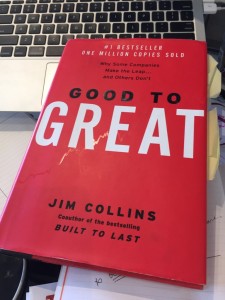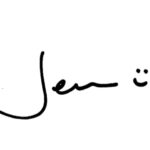
If I were to ask which scenario you’d find more challenging, which would you choose:
1. Turning around a business that’s grossly underperforming ? or
2. Taking a business that’s performing well and turning it into something great?
What I know for sure is this: they’re both hard. In fact, any change is hard, and that’s why most people run from it!
Underperformance is hard because it blankets an organisation like a big black cloud. Staff are demoralised, burnt out, embarrassed and may even feel betrayed by the leaders they trusted. So they wind up just going through the motions, doing what they’ve always done, expecting nothing better than the same disappointing results they’ve always had.
They’ve lost hope and that permeates across everything they do, and every person they interact with, from customers to managers to their peers. Even their personal relationships suffer.
There’s no sunshine or laughter in the underperforming camp because, well, losing isn’t much fun. (It’s footy finals time across Australia and for the AFL and NRL fans among us, if your team’s already hung up their boots for the year, then you’ll know what I mean!)
Being on a losing team is tough. But the saving grace is this: everyone knows there’s a problem. From the players, to the coaches, to the sponsors, to the fans.
The same is true of an underperforming business. Management knows there’s a problem (and they’re probably losing sleep over how to fix it). Staff know there’s a problem (and they’re probably feeling the brunt of it in the form of workloads or layoffs or pressure to perform). And customers are probably already voting with their feet.
The good news in a situation like this is that there’s no convincing required of the need to change: the results speak for themselves and are there for all to see. So when the right leadership comes along, with the right skills and expertise and confidence to steer the ship; and the right investment in fixing the people and processes and products, there’s a ready appetite for change.
Contrast this with the second scenario, where performance is already good. The irony in this situation is that good performance is usually accompanied by a general consensus that “she’ll be right”. And they usually are. Because things are good! There’s little desire to do things differently: if it ain’t broke, why fix it? So it usually takes a lot of convincing of why change is needed in the first place.
But in today’s world of data flow and disruption, of reduced barriers and on-demand alternatives, good performance isn’t good enough. For very long, anyway.
Because good performance is easily matched, and soon forgotten. And good performance is stagnating, because if you’re not well ahead of the competition, it’s only a matter of time before they’ll catch you.
That’s why good is the enemy of great.
 But how do we get from good to great? Well we all know Jim Collins is the authority on that topic, with over 4 million copies of his book sitting on the desks of the most successful leaders around the world.
But how do we get from good to great? Well we all know Jim Collins is the authority on that topic, with over 4 million copies of his book sitting on the desks of the most successful leaders around the world.
Collins’ book is the product of five years research, exploring not what great companies do, but rather what they do differently to the good companies all around them. And Collins’ research shows that greatness is not primarily a function of circumstance, but largely a matter of conscious choice and discipline.
Getting from good to great takes the strength of character to embrace change at the right time and for the right reason, long before a crisis unfolds. And the grit to work through any crisis that does present itself.
It requires every single member of the team to commit to bringing the very best of themselves, to every aspect of their role, at every single opportunity.
This will only happen if every single member of the team has a compelling WHY, and is given the tools and encouragement to realise their full potential.
But when those things come together? That’s when magic happens! That’s when greatness emerges. And that’s when every member of the team is a winner (and oh my, doesn’t that feel good!)
If you’re part of good team, or a good business, ask me how I can make it great!






Leave a Reply